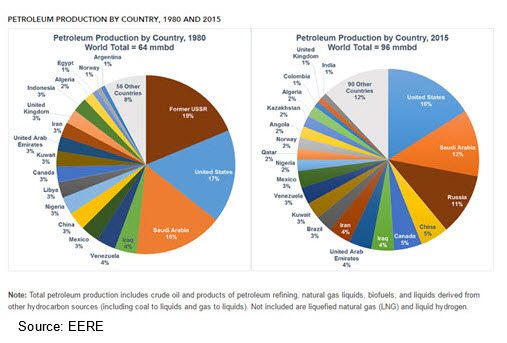

The big fracking companies - Devon, Pioneer, and Continental - burned by multiple boom and bust cycles over the years, pledged in February not to increase production until 2023. They’ve said so explicitly, out loud and in public. It was so bad last year that ExxonMobil CEO Darren Woods even floated the idea of pay raises, in a pandemic economy!īut even if labor were not a concern and the government threw all its resources into solving the industry’s material shortage problem, oil and gas executives don’t want to increase production because the high prices are working for them financially at the moment. Except in the fossil fuel industry’s case, the labor shortage has been coming for a long time recruitment and retention are hard when you’re in a dying industry. Like every other industry during the pandemic, the fossil fuel industry was hit by material and labor shortages. Between those rollbacks and the lifting of the export ban, the oil and gas industry currently has more freedom to drill than it’s had since regulation began. In fact, prior to leaving office, Trump tried to make as many of them as permanent as possible via executive order. In tracking the fossil fuel-requested subsidies, loopholes, and regulatory rollbacks during the Covid-19 pandemic, I counted well over 100, the vast majority of which remain in place. Under Trump the goal became not just “energy independence” but “energy dominance.” When Covid hit and the industry was suddenly sitting on mountains of oil barrels worth less than nothing, they seized on the opportunity to request further deregulation.

Bush - and again the industry insisted it needed more land, fewer regulations, and more drilling. history, an honor previously held by George W. When Donald Trump was elected in 2016, he became the most fossil fuel-backed president in U.S.

Their efforts paid off in 2015 when President Barack Obama lifted the ban. The story they told was one of national security and energy independence, a return to global superpower status. But suddenly, exporting was the industry’s last hope to maybe turn a profit on fracking, so the math changed. The policy had been in place since that 1970s oil crisis in an effort to insulate Americans from the volatility of the global energy market. In 2012, when it was already clear that the fracking boom was headed for a bust, the fossil fuel lobby began pushing hard to lift the ban on exporting American oil and gas. The oil industry, of course, claimed that the shortages were all the government’s fault for refusing to let them drill more in the years preceding the embargo. The result was rationing, miles-long lines at gas stations, a whole lot of headlines questioning our dependency on foreign oil, and ultimately a huge boom in energy efficiency and non-fossil energy in the U.S. And in the meantime, since the industry is going to blame the government for everything anyway, a little intervention would actually be helpful here, not to help the oil and gas companies but to rein them in and actually help the American public.ĭuring the 1973 Arab-Israeli War, Arab members of the Organization of the Petroleum Exporting Countries imposed an embargo on exporting oil to the U.S. On top of the fact that there’s no such thing as an “immediate” increase in oil and gas production, if anything this crisis is one more reason to speed up the transition away from fossil fuels. This week, as President Biden banned the import of Russian oil and gas, fuel prices skyrocketed, and pundits and Substack bros across the land repeated the company line we all know by heart now: We need to drill more and increase production.


 0 kommentar(er)
0 kommentar(er)
